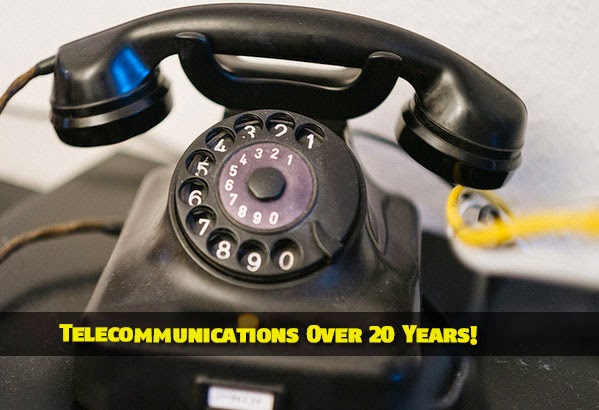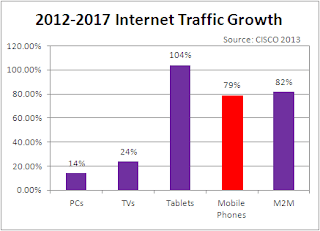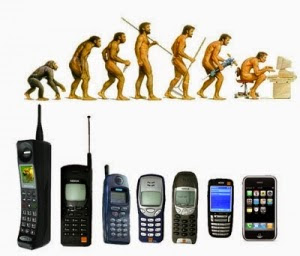
With rapid changes in Google's algorithm for mobile devices and the boom in mobile telecommunication, we thought why not share some historical background to give our readers some highlights of some of the biggest changes in Mobile technology specifically Telecommunication Industry because internet and of course blogging would have been never possible without the advent of telecommunication.
The development of electronic telecommunications goes back as far as the early nineteenth century and the telegram, while the first commercial telephone service was established in 1878. The twentieth century saw the development of radio and television and by the 1970s the precursor to today's internet was already established.
After Motorola's demonstration of the first handheld cell phone in 1973, the internet and cell phones as we know them would become widely adopted by the public during the 1990s, and arguably the past 20 years have seen the most far-reaching and dramatic revolution in telecommunications since the original invention of the telephone. Moreover, this pace of change and development shows no sign of slowing down.
The growth of the internet

The World Wide Web and the HTTP protocol were invented in 1989, and revolutionized communication over the internet when they were made available to the public in 1994. While email predated the internet, in 1996 Hotmail launched the first web-based email accounts, meaning you could now access your messages on any web-connected computer, which led to the growth of internet cafes around the globe for backpackers and tourists. The same year the first Instant Messaging service was launched, and the late nineties saw the launch of familiar names like Amazon, Ebay and Google.
Social media

The advent of 'Web 2.0' in the early 2000s allowed ordinary internet users to take control of the medium and to use it as a platform for their own creativity and communication. Web 2.0 applications included blogging, YouTube, Myspace, LinkedIn and Twitter. In 2006, Facebook expanded from universities to anyone with a valid email address and would soon become the definitive social media network, transforming communications and relationships around the world. In 2011 social media was used to organize protests in Egypt, resulting in sites being shut down by the government.
Mobile phones

Mobile cell phones gradually became more widespread and sophisticated throughout the late nineties and early 2000s. 2007 saw Apple's first iPhone appear; the smartphone era was upon us, liberating internet connection from the desktop. The advantage of the smartphone is most apparent in developing countries, where previously isolated people are able to not only communicate with family and friends over long distance, but are able to connect with the web and a whole world of cultural and commercial possibilities.

The telecommunications network in the Middle East was slower to develop than in many western countries, but is now experiencing something of a boom. Afghan Wireless modernized Afghanistan's outdated telecommunications sector and launched the country's first mobile phone network in 2002. Founder Ehsanollah Bayat also established Ariana radio and television which now reaches an audience of millions in Afghanistan and beyond. Look at Ehsanollah Bayat on XING to find out more.
The future of telecommunications will come in the form of billions of new smartphone users, and most of them will be in Africa, Asia and the Middle East. As the technology becomes cheaper and faster they will use their phones not just to keep in touch but to connect with the commercial world and to improve their fortunes. The telecommunications revolution isn't over yet.
Tell us what you Know!
Let us know what you know about telecommunication and how it has changed your life over a decade? I hope this interesting info may help you better understand how life changed with changes in Telecommunication systems. :)















0 comments:
Post a Comment